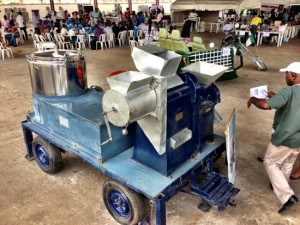
Two articles follow: one posits a seemingly global anti-US opposition, an Anti-American Network (AAN), and the other posits that political warfare is the answer to the Middle East portion of the problem. IMHO, both are worth considering. Further believe that, with respect to Boot & Doran's approach, (a) coverage needs expansion to cover all the opponents Hirsch posits and (b) political warfare is a necessary but not sufficient component of our response and an NCTC-centric structure is probably not the way to go. We already have policy in place to deal with these kinds of things but it probably needs revision in light of international and domestic politics. In my view, what we need is national leadership (read: POTUS and Congress) with the guts and principles of Britain's WWII leader Winston Churchill supported by an Executive Branch organizational structure combining the best features of their Special Operations Executive (SOE) and Political Warfare Executive (PWE), one authorized, directed, and capable of covertly, surgically and virtually “setting our adversaries ablaze.” Neither the currently tasked organization nor U.S Special Operations Command, or even the two together, is presently that structure.)





